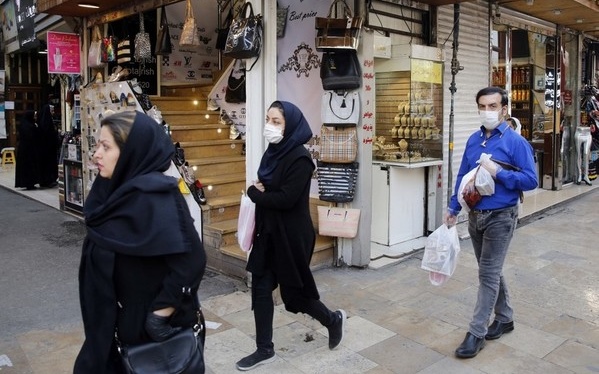On June 24, I was interviewed by the Iranian Labor News Agency about the status of the 2015 nuclear deal between Iran and the 5+1 Powers; the US effort to extend a UN arms embargo on Tehran, set to expire in October; and Iran’s economic situation.
While the questions sought criticism of the Trump Administration, ILNA’s article retained my comments challenging the Iranian regime as well, notably over its rejection of a European economic link and its management of the economy.
The interview is below, followed by ILNA’s published version.
Trump is trying to destroy the JCPOA [Joint Comprehensive Plan of Action]. Why is he doing this?
Donald Trump’s narrow reason for US withdrawal from the 2015 nuclear deal is his hatred of any achievement of President Barack Obama.
The wider motive for Trump’s high-level advisors, such as Secretary of State Mike Pompeo, is to step up sanctions and break the Iranian economy. They could be seeking a re-negotiation of the nuclear deal, with Iran surrendering on key points over its nuclear program, or even pursuing regime change.
What is the justification for the US effort to extend the UN arms embargo on Iran?
The effort to extend the UN arms embargo, which is linked to the JCPOA if not part of it, is to maintain diplomatic pressure on Iran.
But it is also part of a contest between Washington and Tehran in the region: while the Trump Administration allies with Saudi Arabia and Israel, Iran props up Bashar al-Assad in Syria, provides military and political support to Yemen’s Houthi movement, and works with Lebanon’s Hezbollah.
Is Europe capable of confronting the United States about Iran?
The European Union has already distanced itself from Washington with the January 2019 launch of the financial mechanism INSTEX, for trade in Iranian oil and other commodities and goods. The challenge is that Iran rejected conditions around INSTEX, such as discussion of its missile program, activities in the Middle East, and alleged involvement in bomb and assassination plots in Europe.
The decision not to accept the European link has added to Iran’s economic difficulties.
Can China and Russia prevent the extension of the arms embargo?
It is unlikely that the US can push through the arms embargo. The Europeans will look for a compromise, and Russia and China could block any Security Council action.
But this does not solve Tehran’s problems. Its economy is crippled and cannot recover by relying on China, with Iranian exports down 53% compared to a year ago, or Turkey, with trade down 70%. The currency is at an all-time low, and there are problems with production, investment, and employment.
Iran’s leaders will try to avoid any repeat of November’s protests by pinning the blame on the US, but this approach cannot be sustained forever — or maybe even for months.
To Pressure Iran, Pompeo to Push for Extension of Arms Embargo
“Donald Trump’s narrow reason for US withdrawal from the 2015 nuclear deal [JCPOA] is his hatred of any achievement of President Barack Obama,” a Political science professor at the Department of Political Science and International Studies told ILNA.
William Lucas, who is Professor of International Politics, said in an exclusive interview that the wider motive for Trump’s high-level advisors, such as Secretary of State Mike Pompeo, is to step up sanctions and break the Iranian economy.
“They could be seeking a renegotiation of the nuclear deal, with Iran surrendering on key points over its nuclear program, or even pursuing regime change.”
Asked if the U.S. government would eventually be able to renew a UN arms embargo on Iran, he said, “The effort to extend the UN arms embargo, which is linked to the JCPOA if not part of it, is to maintain diplomatic pressure on Iran.”
The political analyst confirmed, “It is also part of a contest between Washington and Tehran in the region”; adding that it is unlikely that the US can push through the arms embargo. The Europeans will look for a compromise, and Russia and China could block any Security Council action.”
“The challenge is that Iran rejected conditions around INSTEX, such as discussion of its missile program, activities in the Middle East.”
William Lucas said that the European Union has already distanced itself from Washington with the January 2019 launch of the financial mechanism INSTEX, for trade-in Iranian oil and other commodities and goods.
He refers to the world’s request to lifting U.S sanction on Iran and stressed that but this does not solve Tehran’s problems. Its economy is crippled and cannot recover by relying on China, with Iranian exports down 53% compared to a year ago, or Turkey, with trade down 70%. The currency is at an all-time low, and there are problems with production, investment, and employment.
“Iran’s leaders will try to avoid any repeat of November’s protests by pinning the blame on the US, but this approach cannot be sustained forever — or maybe even for months,” the British professor said.

